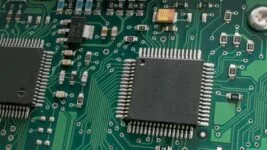
RAM in Mobile Phones its Importance in Performance and speed
RAM in mobile phones is the key specifications to check when you buy a new one. Have you ever wondered why adequate RAM is crucial for mobile performance? Let’s delve into the significance of RAM, how it impacts your device’s efficiency, and what happens if RAM is removed or stops working.
Understanding RAM: Primary vs. Secondary Memory
In any computerized system, memory is categorized into primary and secondary memory:
- Primary Memory: This is the short-term memory or storage for temporary data. It is erased when the device is turned off. RAM is a type of primary memory.
- Secondary Memory: This is the permanent storage that retains data even when the device is switched off, such as your phone’s internal storage or an SD card.
What is RAM?
RAM (Random Access Memory) is crucial for accessing ongoing operations, making your mobile or computer device superfast. It stores data of all recent and ongoing operations in a readily accessible way, enabling the CPU to fetch data quickly whenever required. RAM is significantly faster than the storage disk in your device. The higher the RAM capacity, the higher the speed of your smartphone. Modern cell phones now come with 4GB to 12GB of RAM, which is quite high for any typical smartphone.

Importance of RAM in Mobile Performance
When you switch on your smartphone, some part of the RAM is utilized by the operating system. The remaining RAM is divided among essential applications and any additional apps you run. The higher the RAM capacity, the more applications your device can handle simultaneously without affecting performance. RAM is an essential part of your mobile device; without it, your smartphone would either be unusable or very slow.
Enhancing Device Speed and Efficiency
When a new application is opened, the CPU fetches data from secondary storage and loads it into RAM for quick access. This process reduces the time taken to fetch data from secondary memory, making your mobile device more speed-efficient. More complex applications require higher RAM capacity to operate effectively without lag.
Benefits of High RAM in Mobile Phones
- Enhanced Multitasking: Higher RAM allows more applications to run concurrently without slowing down your device.
- Better Performance with Heavy Applications: Resource-intensive applications like games, video editors, and multimedia apps run smoothly with higher RAM, providing a better user experience.
- Future-Proofing Smartphones: As applications evolve and become more demanding, having more RAM ensures your device can handle future software updates and new applications without performance degradation.
Consequences of Low RAM in Mobile Phones
- Performance Issues: Low RAM can cause applications to close unexpectedly or run slower as the device struggles to allocate enough memory to each process.
- Frequent App Reloads: Applications not in active use may be offloaded to secondary storage, causing delays when switching back to them.
- Manual Cache Management: Users may need to frequently clear cache and manage running applications to free up RAM, which can be inconvenient and time-consuming.
What Happens If RAM is Removed or Stops Working in a Phone?
System Instability and Failure to Boot
- No Booting: If the RAM is completely removed or fails, the phone will likely fail to boot. The operating system and essential processes cannot load without RAM, resulting in the device not starting up at all.
- Frequent Crashes: If the RAM is faulty and not entirely non-functional, the phone might boot but will experience frequent crashes and reboots.
Severe Performance Degradation
- Extreme Slowness: Without functional RAM, any ongoing processes cannot be stored temporarily for quick access, causing severe performance degradation. Basic operations will take much longer, if they are even possible.
- Inability to Multitask: The phone will struggle to run multiple applications simultaneously, leading to freezes or crashes when switching between apps.
Application Failures
- App Crashes: Applications require RAM to run. Without it, apps will crash immediately upon opening, or they may fail to launch altogether.
- Data Loss: Applications may lose data that was not saved to secondary storage because it was being temporarily held in RAM.
Operating System Issues
- System Errors: The operating system relies on RAM to function. Without it, the OS may encounter errors, fail to update, or become unresponsive.
- Corrupted Files: System files that are in use when RAM fails could become corrupted, leading to more significant software issues.
Impact on User Experience
- Unusable Device: In most cases, a phone without functional RAM becomes unusable. Essential functions, from making calls to sending messages, require RAM.
- Data Accessibility: While secondary storage may remain intact, accessing any data stored there will be difficult without a functioning OS and applications.
Conclusion
Adequate RAM in mobile is crucial for the performance of any smartphones. It ensures that the device can handle multiple tasks efficiently, run complex applications smoothly, and maintain overall speed and responsiveness. When choosing a new smartphone, considering the RAM capacity alongside a good processor and graphics card is essential for a high-performing, future-proof device. Additionally, understanding the consequences of RAM failure highlights its importance; without functional RAM, your device can become nearly or completely unusable, significantly impacting your user experience.


